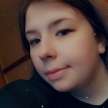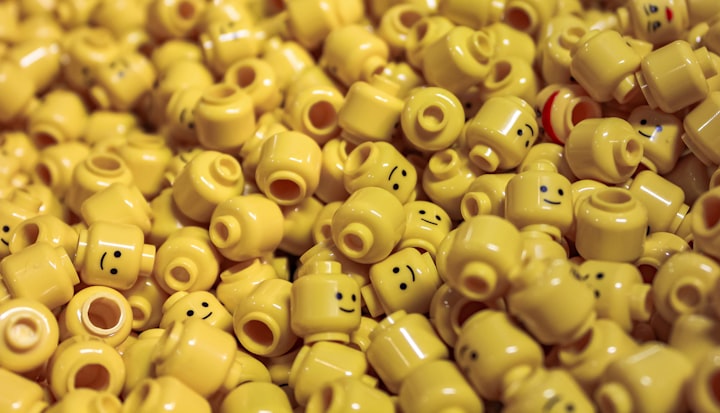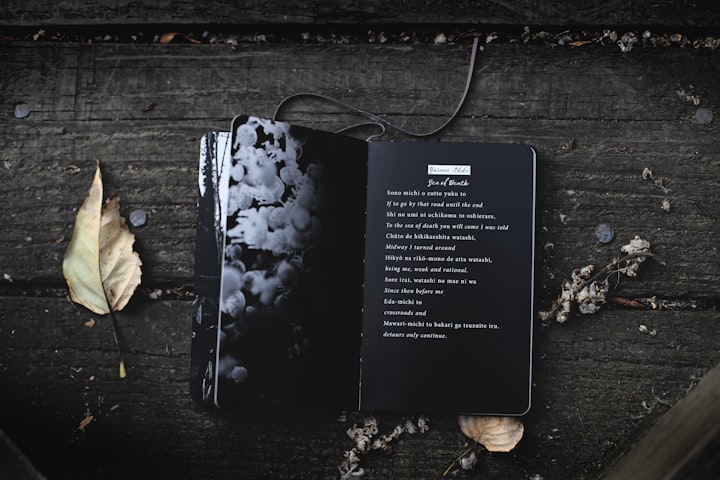Fun Ways To Develop Your Characters
Tips for Finding Who Your Character Is
In any story, your characters are going to be the most quintessential element. They are the drivers of the plot, the mouthpiece for the messages you want to relay to your audience, and the very heart of the story itself. A great character, in my experience, can sometimes be the saving grace of a struggling story, and a boring cast can make even the most interesting of plots dull. I believe every character has the ability to be full of life, to stand on their own and make an impact. And one of the best ways to help bring that full potential out is to learn as much as you can about the character you wish to write and get a solid grasp of understanding on who they are.
Your characters' "voice" and identity is something crucial to remain consistent, even and including with their character development. It's best to know what would be completely out of character for them to do, how they would act in a given situation, and, in my opinion, know even minor details like what would this character's favorite color be or what are they allergic to or what's a memory that's stuck with them their whole life. It allows readers to connect with your cast in a deeper way, to want to see where they go in the story and keep them hooked -- as well as give you a chance to further talk about these characters you love when a fan wishes to ask deeper questions to know more about them.
I believe we're always still learning on how to improve as writers, and we all have our own techniques that help us in all aspects of our creations, but that we can always find new ways to better ourselves and our stories, and I wanted to share some ways that help me in my character development.
1). Character Profiles
I was introduced to the idea of character profiles in my early teenage years from the roleplay and original character communities online (be it DeviantArt, Tumblr, etc.). It's the best cheat sheet to have with all of your characters to have something to not only refer back to, but to sit back and really think about what you want them to be or what your inspiration is saying they are. Having a collection of them at your fingertips for your cast of characters is also nice for what would be your "Shelf of Reference". The idea first got described to me that way through the commentary on The Dark Crystal DVD my boyfriends Dad, a fellow writer, got to me watch, to have everything you ever need all collected together; your character information, world building information, even down to the littlest thing you wouldn't think of. You never know what may come up in your story and it's handy to have whatever you need readily available in an easy to find location vs. having to span back through your book for an idea of if you said what you actually said.
There are thousands of templates out there for character profiles to be found online, all wildly different from the next, but I personally have a little bit of a system in creating a set profile template, with some flexibility for the purposes of each story.
- Basics: This would be your area for your characters name, any aliases or nicknames they go by, their age, birthday, zodiac sign, gender, sexuality, birthplace, occupation, or very generalized things you would expect to find, say, maybe on an about page for social media. I also put things like affiliation there, say if your character works closely with a Guild of some kind or a magical organization or anything in between. I also like putting in a detail such as who I could see voicing said character in a cartoon or video game.
- Appearance: This would be as it states. What color is their hair, what style, do they have any? Eye color? Height? What type of body build do they have (something I find much easier to work with than giving a set weight for a character as I've seen a lot of different body types though people would be around the same weight range). I also make note of prominent features in them, such as freckles, tattoos, piercings, scarring, birthmarks, etc., as well as what kind of clothes and accessories you'd see them wear.
- Personality: This is the meat and potatoes of the profile. I've swung between doing a point of "overall personality" with a categories of positive, negative and neutral traits following afterwards, or doing just positive/neutral/negative traits, or the overall personality with following categories of strengths and weaknesses, with a "greatest strength" and "fatal flaw" category as well. There is absolutely flexibility there in what you believe is the best way to list them for your own clarity. Following points after that include things like what hobbies they have, what do they fear, what goals do they have in life, their favorites and least favorites for things like food, color, seasons, music, etc. I also love to do things like MBTI tests for my characters, as it is also a chance to dive into some deeper questions that let me judge what I believe the characters responses would be as well as what I believe for them.
- Skills and Abilities: What are things your character are good at in terms of skills? Do they have powers, if so, what all do those powers allow them to do? Are there drawbacks to their abilities? Do they use any types of gadgets or equipment to further these skills and/or powers? One thing I also find helpful is something I'd typically find on a wiki for an action based anime or in games, which are the "stats" category. These would be like ranking how good they are, usually from a scale of 0-5, though some surpass 5, on things such as strength, speed, etc. Dungeons and Dragons also has their own stats list in their Ability Scores (strength, dexterity, constitution, intelligence, wisdom, charisma) that is also a very helpful guide for this category.
- Relationships: For my relationships category, I typically end up being general. I list off who their parents are, siblings, extended family, if they have pets or children, their romantic interests (if they have one), best friends, rivals, enemies, the works. However, you can get as detailed as you would like if you wish to delve further into it, describing their relationship to each individual person of significance in their life as well.
- History: This one is a bit self explanatory, but this would be where you would fill in anything and everything about the character's background. If you feel it fitting, you could also turn this category into a "timeline" instead, listing out their backstory and everything that happens to them over the course of their story.
- Miscellaneous: This would be for anything else that does not fall into the other categories. I like to put little trivia facts, inspirations that came in creating the character, meanings behind their name, or just about anything else. This may also be a good category to have if you want to take your profiles a step further with character specific questions. Tumblr has a ton of questions geared towards your characters you can find in tags like "oc questions", "oc ask memes", etc., that may not fit into any one category but would help in you getting a better understanding of them.
There are dozens of other ways to create profiles, and one of the fun things to do is experiment until you find the way you want to make them. I've seen people get incredibly creative with their profiles, such as making it look like its own wiki page complete with pictures, sometimes as journal entries by the characters -- the possibilities are endless!
2.) Character Playlists
Music has always been my go-to for inspiration when I'm stuck on a scene or riding in the car, trying to daydream up new bits for the story or iron out something with world building or characters. With thousands of music apps and websites at our fingertips, we can now create our own playlists for our characters.
This can be an absolute help in writing them and getting more of an understanding for them. What are songs that remind you of them, with melodies and/or lyrics that strike you as fitting them? Does it reflect a part of their journey? Some writers even simply make playlists full of music they believe their character would listen to, rather than it just being songs that reflect who they are. It can also be fun for the more visual artists out there to make covers for their playlist, what they would do to draw said character for the cover and what images they would invoke with it.
3.) Incorrect Quotes
Incorrect Quotes have been a fun, new way to get a little more in touch with your characters that have been kicking off in the last few years. What they are, for reference, are quotes that can be taken from one form of media -- shows, books, movies, or even from TikToks or tumblr posts -- and written as characters from a different media or your own original characters saying them instead.
These are honestly fun and laughter inducing ways to kind of getting a better grasp on the voice aspect of your character. What quotes from other media can you see them saying? Are they realistic to conversations they would have? Who would they say these things to?
I have here some examples my boyfriend and I have compiled in between writing for our own story, Astrarium, as a bit of a guide to show it off a little bit better:
Nym, to Ari: You come to me if you want advice on men.
Nym: You go to Henri if there's grammar you want help with.
Henri: You ended that sentence with a preposition just to bait me.
source: Golden Girls
-
Clyde: You wanna help me with something?
Ari: Sure Clyde! What d'ya need?
Clyde: Eh, nothing too big. You know what plausible deniability means kid?
Ari: Uh...no?
Clyde: Perfect.
source: 50% Off!
-
Pete: You call it "really bad at darts". I call it "freestyle acupuncture".
Zephyr: Pete, we got kicked out.
source: unknown.
-
Braum: This is such a bad idea.
Ronan: Then why are you coming with me? I told you it's better for you to stay behind.
Braum: One of us needs to be able to talk the knights out of arresting us when this inevitably goes horribly wrong.
source: unknown
They're a stress free way of getting to know your characters just a bit more and figuring out their tones. Finding these can be as easy as watching a show or going on tumblr for inspiration, or to some incorrect quote generator websites that have been developed, such as this one and this one right here!
4.) Pinterest Boards
A classic way of helping develop characters is through making aesthetic boards for them. This would be finding images -- usually of scenery, objects, or things of specific colors, and even quotes -- that invoke feelings of your character in them. These fit your characters aesthetic, essentially, things they would love. Aesthetics are also fun to add to your character profile as well if you want, going into specifics through the 5 senses and what thinks invoke your characters "aesthetic" in each.
5.) Drabbles and Writing Prompts
Finally, there's always something of value in writing, writing, writing! Sometimes, you just need to sit down and write something on a smaller scale to flex your creative energy, such as a pre-write, which would be the closest thing to practice drawings and warm up sketches we as writers would have. However, even if they are something you would deem inconsequential, they can still act as fun ways to explore your character a bit more!
Write drabbles, tiny stories, about them. Things you would love to explore but can't seem to find to fit into your story. You could even look up writing prompts from your respective favorite sites or books dedicated to prompts for ideas, whether it be a very plot based prompt or something of "add this sentence somewhere in your writing". It gives you the ultimate freedom to really explore them and then save it for your shelf of reference on them as well; a sample of your own writing that guides their voice. Should you wish to publish your works as well, you could even make collections of these drabbles and prompts to share with the world as a little bonus for extra money or availability!
There are always ways to improve ourselves as writers and to get to know our characters we love dearly. We as writers could always use more tools in our toolbox, and new ideas to explore, so my ultimate advice is this; never be afraid to try new methods, and stick to your guns with your characters so you can breathe the ultimate sense of life into them.
About the Creator
MacKenzie Duncan
22, she/her. I've been writing stories since I could pick up a pencil, and always looking for new outlets and mediums to present every little idea.







Comments (1)
There is media discussion I have great media platforms. but first of all, you generate your content and what you post on it. try this free tools to generate quotes and content https://quotesgenerator.co/incorrect-quotes-templates/